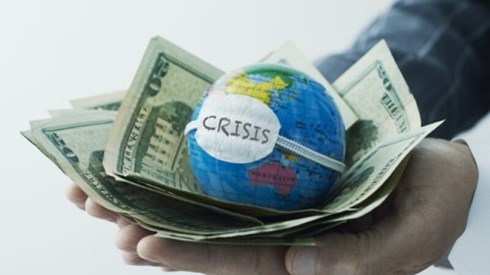COVID-19 Pandemic's Sheer Scale Sets It Apart from Other Catastrophes

June 28, 2021

From an insurance perspective, one of the main factors setting the COVID-19 pandemic apart from other catastrophes has been its scope.
"I think it's important to note the sheer scale of the insurance claims that have been made. They exceed anything that has been previously known," said Nick Williams, partner and head of the Insurance Division at the Kennedys law firm.
"These claims are absolutely everywhere in the world," Mr. Williams said, and the losses experienced range from the largest companies to small businesses. Among the losses being claimed are property losses, business interruption losses, contingency claims, travel claims, healthcare claims, and directors and officers claims.
Mr. Williams noted that courts around the world are now determining the validity of those claims, and their decisions will vary from jurisdiction to jurisdiction, leading to uncertainty. He spoke as part of a panel at this year's Bermuda Captive Conference titled "The Pandemic—Is There a Light at the End of the Tunnel for Your Company and Will the Pandemic Impact Your Captive?"
"In the US, we're all familiar with the fact that there are certain states where plaintiffs like to be and defendants don't like to be," he said. "And that dynamic now is really playing out on a global scale."
Regarding elements of the pandemic that have proved the most challenging when considering policy response and wording, Mr. Williams suggested it's the fact that the pandemic remains ongoing.
"That in itself puts it in a completely different category, and it tests the scope of many insurance provisions," he said. That's further complicated by differing public responses to the pandemic around the world.
"The nature of the effect or the noneffect on buildings or other properties of individuals contracting the virus is arguably important under certain insurance policies but not under others. That's another important area," Mr. Williams said.
Shortages are another factor, a factor that has not spared the insurance industry as it tries to deal with the pandemic.
"The pandemic has led to a lot of shortages," Mr. Williams said. "There's a shortage arisen of forensic accountants, there's a shortage of lawyers specializing in insurance, there's a shortage of arbitrators who specialize in this field. That has led to real problems in trying to process this huge number of claims."
When one has a peril like the COVID-19 pandemic, the tendency is to focus on the direct results of the peril. But, when you have an event as massive as the pandemic, it's also important to focus on the government response, Mr. Williams said. "What's actually caused much of the ripple effect has been the government action," he said, so businesses and insurers should consider their policies in that context.
In addition, black swans don't respect borders between nations or insurance policies, Mr. Williams said.
"The next black swan could be another virus. This could be a cyber virus, and one can easily envision that we experience the same shutdown of the world as we have with this one," he said. "And some of the same insurance issues can emerge, and there could be additional ones because of the cyber issues."
In preparing for the next crisis, it's important to examine insurance policies and programs broadly, according to Mr. Williams.
"One of the main lessons of the COVID experience, I would suggest, is that it's dangerous just to examine the efficacy of one part of an insurance policy or indeed one part of the insurance program, whether it's an exclusion or whatever, in isolation," he said. "The policy and the program should be looked at holistically."
And he offered specific advice to captive insurance companies and their parents.
"As companies which operate captives, what I would say to you is that I suggest that this experience emphasizes once again that the interface between insurance policy and reinsurance policy is crucial and could lead to all sorts of complications if it's not the subject of very, very careful attention," Mr. Williams said.
He suggested that it's probably sensible for captive owners to start a conversation now with their brokers, reinsurers, and other stakeholders about what might be done differently in the next crisis.
As we look to move beyond the current crisis, vaccinations are key to ending the pandemic, according to another panelist, Eric Butler, director, global health and wellness, at Generali Employee Benefits.
"There's nothing more important right now for us to do than to try to encourage everyone to get vaccinated," Mr. Butler said. "It's the number one thing we can do to get out of this predicament."
Employers can help by educating employees about the vaccinations and removing obstacles to vaccination by providing employees time off or offering vaccinations in the workplace, Mr. Butler said. Some employers are providing incentives to encourage employees to get vaccinated, he said.
Dr. Edward Fitzgerald, head of healthcare at KPMG in Bermuda, noted that while there is progress toward ending the pandemic, that progress varies among countries.
"I think there is light at the end of the tunnel, but the problem is really that around the world different countries are in different places and, in fact, in different tunnels," he said.
An improved understanding of the disease and its treatments is a bright spot, Dr. Fitzgerald said, as is the progress on vaccine development. "But licensed vaccines are not the same as having those vaccines in vulnerable patients," he said.
Currently, approximately 12 percent of the global population has received at least one vaccine dose, Dr. Fitzgerald said. "So there is a lot of work to do.
"The coronavirus isn't going to go away. The pandemic may pass, but the virus is with us now. Our approach has to be much more how we manage it and how we live with it," Dr. Fitzgerald said. In a globalized world with outsourcing and far-flung supply chains, we'll need to be more cautious in the future.
"Until we're all out of this pandemic crisis, we're not all safe," he said. "It's in everyone's interest to make sure that vaccinations are rolled out and all countries are able to deal with the coronavirus pandemic."
Brian Quinn, managing director of Granite Management Ltd., moderated the session.
June 28, 2021



